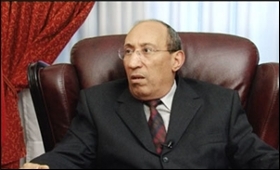SME INDIA
 Gyanendra Kumar Keshri
Gyanendra Kumar Keshri
Morocco, the North African nation that supplies the bulk of India’s needs for phosphate, a key ingredient in fertilisers, is looking for expansion in ties to include more joint ventures, from automotives to information technology to the hospitality industry, its ambassador in an interview said.
Morocco, a constitutional monarchy with an elected parliament, is “contributing to India’s food security” but wants its relations to expand beyond supply of phosphates, of which it holds two-thirds of global reserves, to investment in manufacturing and services.
“India is our top trading partner in Asia and the third largest globally. We have set an excellent example of South-South cooperation. These ties now must expand. There is a great scope for that as well,” Moroccan Ambassador to India Larbi Reffouh said on the eve of his country’s National Day Monday.
“There are already two major joint ventures between our two sides in the broad area of fertilisers. But scope exists in virtually every field – from automotives and textiles to agro-processing and information technology,” Reffouh said in an interview.
A country of 32 million people that is part of what is called the Maghreb region, it shared bilateral trade worth USD 1.6 billion with India last year, and accounts for some 60 percent of the country’s phosphatic needs, a mineral that primarily used in the manufacture of di-ammonium phosphate, an important plant nutrient.
“In many ways, Morocco is contributing to India’s food security,” the ambassador said emphatically.
India’s Aditya Birla Group and the Tatas have an equal joint venture with a state-run company of Morocco at Jorf Lasfar, some 150 km from Casablanca, to produce 430,000 tonnes of phosphoric acid, nearly all of which is exported to India. This apart, Morocco has also invested in Paradeep Phosphates for a unit in Orissa with a capacity of over 2 million tonnes per annum of phosphatic fertilisers. The Zuari Group and the Government of India also hold stakes in the company.
According to the ambassador, Morocco which has 70 pristine tourist destinations, also seeks investments from India in the hospitality sector, particularly for construction and maintenance of hotels and said help is at hand even for acquisition of land.
In fact, the Tata group already runs a luxury hotel in Marrakech, and hopes to open another in Casablanca by the end of this year.
The ambassador explained that among the incentives given to foreign investors in his country, include freehold land ownership and financial support in acquisition of land for factories, modern infrastructure and liberal taxation and other norms.
Under the Moroccan law, local and international investors are treated equally. Whatever incentives are available for national investors are also for overseas investors.
Morocco is the largest recipient of foreign investment in North Africa. It received USD 18 billion such capital between 2000 and 2009, according to the United Nations Conference on Trade and Development (UNCTAD). Majority of it is in fertiliser and minerals.
India and Morocco have set up a joint commission to facilitate two-way investments and trade. “The next meeting of the joint commission will be held sometime in the first quarter of 2013,” the ambassador said.
Ambassador Reffouh said Morocco and India also share common vision in a host of both regional and multilateral forums, notably in the United Nations where the two nations are currently non-permanent members of the Security Council.
“We appreciate that India was among the very first countries to recognise Moroccan independence. It was also the first to establish diplomatic ties and open an embassy in our country,” he said.
“Our ties, in fact, date back to the 14th century when our explorer Ibn Butata travelled to India.
.






